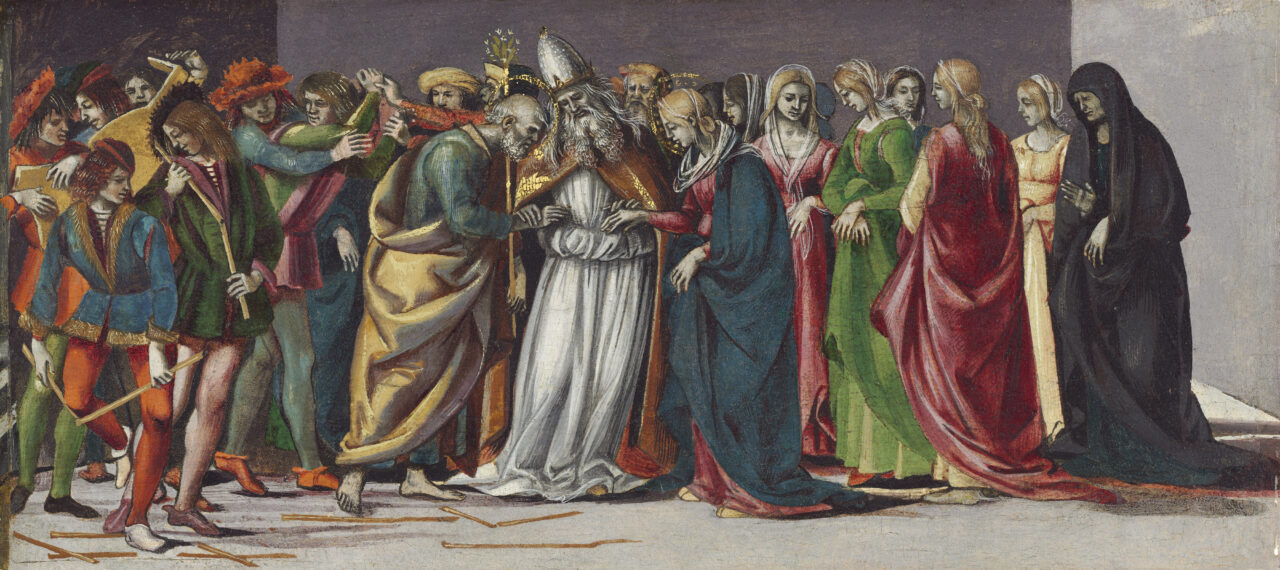Unity in the church is a very important notion, especially now. It’s the champion concept of nondenominational churches, and particularly applicable to the fragmented sects of Protestantism. Even so, I consider it one of the most misused and abused concepts in the faith. I’d like to bring one case in point to the forefront. I cannot know for certain the deepest meanings of the words of Jesus in John 17, but brash interpretations by many warrant confrontation.
Jesus says in John 17:11 “[T]hat they may be one, even as we are one.” “Ah,” says the common reader, “He must be talking about divisions within the church. We need to put all those aside and follow one purpose.” This reasoning is often then used to stifle dissent and prophecy, leading to foul practice within the church (see: indulgences) that is passively condoned by churchgoers. There is no spiritual benefit to being united merely with each other. A Christian need only remember the Tower of Babel. Secular individuals need only look into the past century of history, when political unions and mobs focused their ire and energy into the world’s most destructive endeavors. What’s more, Jesus Himself disrupted religious institutions greatly, flipping tables, calling out the faithful, and waging His own one-man war against the corrupt practices of the day. Perhaps He was one with the church, but His agency implies more than the passive compliance modern interpretations imply.
Jesus in fact clarifies the truth when he echoes in verse 21 and clarifies, “just as you, Father, are in me, and I in you, that they also may be in us, so that the world may believe that you have sent me.” There is another use of “being one:” when two become one, as in a marriage. “’Therefore a man shall leave his father and his mother and hold fast to his wife, and the two shall become one flesh.’ So they are no longer two but one flesh. What therefore God has joined together, let not man separate.” (Matthew 19:5-6) For what it’s worth, the very same Greek word for “one” is used in both cases. From what I see, Jesus doesn’t ask God to “keep them in [His] name” simply that mortal men could get along. He wanted people to be united with the Father, because that’s the union that matters. The eucharist, the original covenant with Abraham, the call to prepare for Jesus’s return are all motifs of marriage tradition of the time. This is us leaving the world to be with Christ forever.
With that new context, let’s adjust our perception of the passage. It will help to read John 17 first. Jesus when addressing the Father brings up mutual glorification, possession, and existence. God bestowed Jesus with followers so that Jesus might convey God’s words that were passed through Him. Jesus prays for them; they belong to God by right but still exist in the world. Jesus asks God to “keep them in Your name, which you have given me, that they may be one.” Jesus states that He took good care of them, and He asks God to protect and sanctify them as He goes to the Father. The disciples are not the only ones on whose behalf He petitions, but in fact the entire church. Personally, I find the relationship with God to be central to this passage, and unity amongst the believers to be a footnote if mentioned at all.
If you are looking for passages about unity within the church, 1 Corinthians 3 discusses the dangers of placing identity in religious figures outside of Christ. Paul directs the attention of the church singularly behind Christ. Paul similarly writes how common purpose, common Spirit, common God, etc. should lead to brotherly love, humility, and all manner of good things. Psalm 133 is short and perhaps memorizable, instructing “how good and pleasant it is when brothers dwell in unity!”
Union is a tool that makes things stronger. It can bolster great evils and reap great benefits. Let the union you wield strengthen your faith with God, and you cannot go wrong.
Image: The Marriage of the Virgin by Luca Signorelli.


Leave a Reply